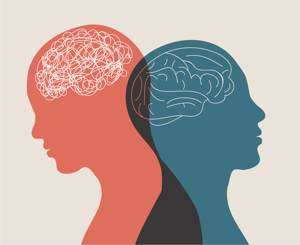by Ewelina Woloszyn, Feb. 22, 2024
“Even the darkest night will end and the sun will rise again.” — Victor Hugo.
We believe that emerging technology solutions and their intelligent implementation could address some critical issues that affect around 18% of Americans who are struggling with mental health issues. Today we will address some challenges that may affect the underrepresented communities – like stigma, lack of culturally competent mental health resources, and barriers to accessing appropriate care.
Let’s talk about how Natural Language Processing (NLP) platforms can help in the fight against mental health stigma. Mental health stigma is a real thing. Sometimes, it feels like there’s this unspoken rule that people should keep their struggles hidden. Natural Language Processing Platforms can help address this issue by creating a safe space that is not judging, but listening and responding. The space for people to share emotions – isolation, feeling down, depression, anxiety, etc. While they could feel ashamed to share it because of the judgment of others or fear of making fun of it, they could open up and seek help through virtual assistants and chatbots. This helps people feel safe to talk about their worries without being scared. For underrepresented communities, where cultural differences or unique challenges might make it harder to talk about mental health. NLP platforms can learn and understand different ways people express themselves, ensuring that everyone, no matter where they’re from, can feel heard and supported. It also includes different dialects, belief systems, and religious or ethnic backgrounds. Need someone to talk to? They’re there. It’s like having a virtual support system right at your fingertips.
In a world where mental health stigma can be a real obstacle, NLP systems are breaking down those barriers. In a world where mental health can sometimes take a back seat, NLP systems are the driving force. They’re all about making mental health conversations as normal as discussing the weekend plan or asking about the weather. I am not suggesting that they should be replacements for the therapy, but they could be a support on the road to improving well-being.
“And still, I rise.” — Maya Angelou. I know that this topic was not covered fully and the complexity requires the collaboration of mental health professionals, community leaders, and individuals from diverse backgrounds is essential to create solutions that are truly effective and inclusive. While addressing the issues we have to include cultural and ethical differences, ensuring data security is protected when dealing with sensitive mental health information.






